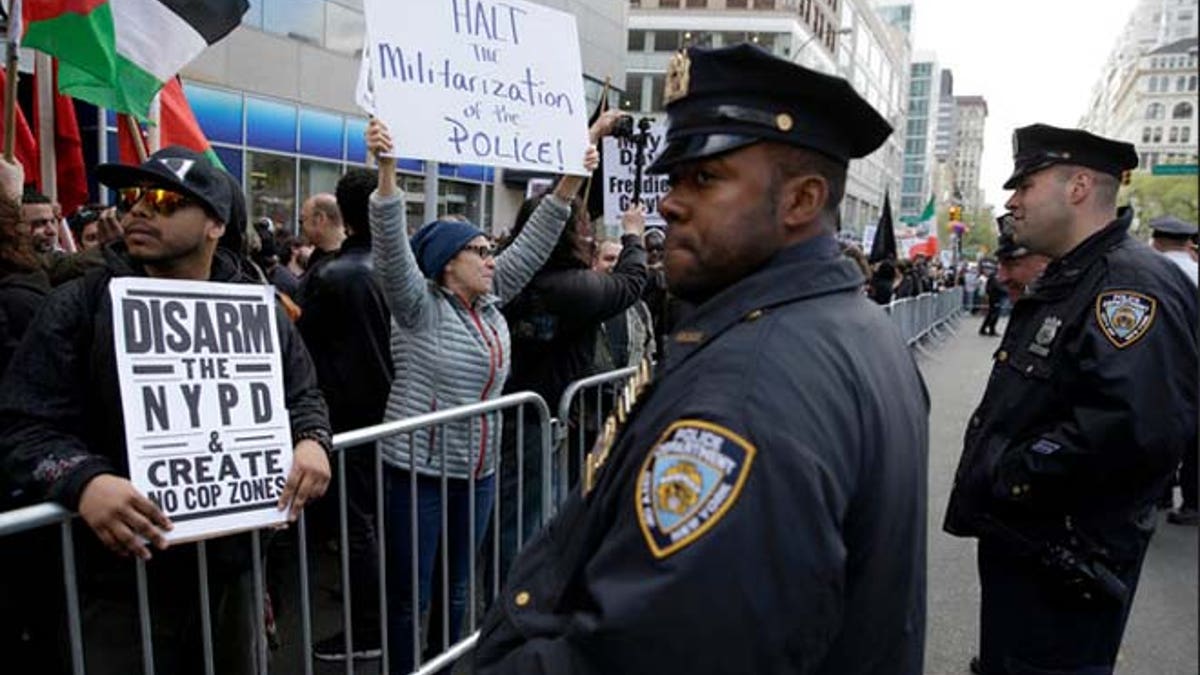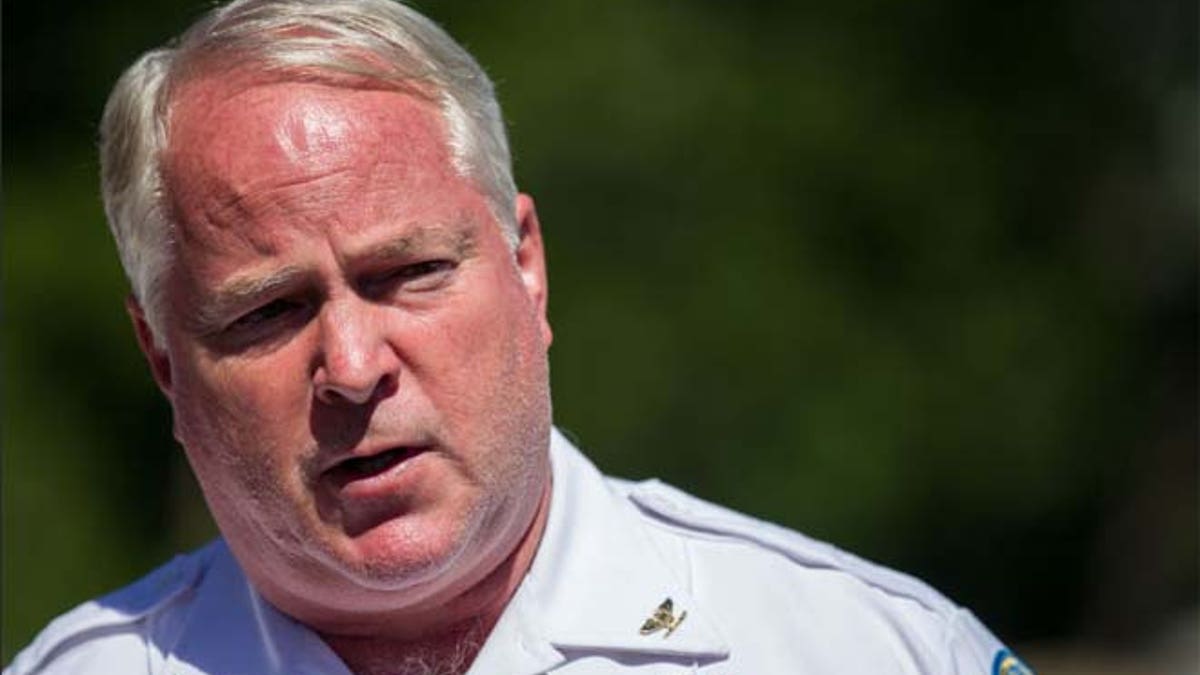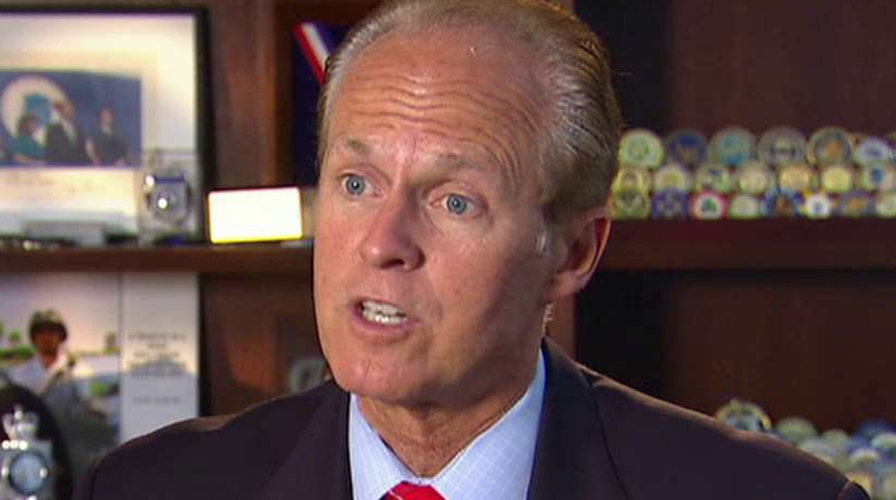The increasingly anti-cop climate throughout the nation has raised concerns that police recruitment could suffer, but so far -- at least in certain cities -- it actually may be bringing in more applications, law enforcement authorities told FoxNews.com.
In Dallas, where Police Chief David Brown, in the wake of the July 7 assassination of five police officers, called for protesters to apply to his department to “be part of the solution,” applications have skyrocketed. Departments in Denver, Las Vegas and other major metropolitan areas have seen more modest increases in applications, and one former Los Angeles police officer hoped it is a sign Americans are answering an urgent call.
"It could turn out to be similar to what occurred after 911, where numbers increased," retired LAPD Detective Supervisor Sal LaBarbera told FoxNews.com.
Orange County, Calif., Sheriff’s Office spokesman Lt. Mark Stichter said the department is seeing a spike in applications.

Police protests have rocked the nation since a racially charged shooting in Missouri. (Associated Press)
"Law enforcement draws a certain type of person,” Stichter said. “When horrible events like cops being shot occur, there are people who want to be a part of working at trying to solve the problem.”
Scorn directed at police by protesters such as Black Lives Matter has intensified since the shooting of Michael Brown in Ferguson, Mo., two years ago. Although the Department of Justice cleared the police officer who fired the fatal shots, subsequent racially charged shootings by police have led to demonstrations throughout the country. And the Dallas murders, as well as the assassinations of three Baton Rouge, La., cops on July 16, has driven home that police are not only unpopular, they are at grave risk.
In the two weeks following Brown’s appeal, applications to join the Dallas Police Department jumped 344 percent – to 467 from just 136 for the same period a month earlier. Whether the applicants will go on to don blue uniforms is yet to be known, but other departments too have clocked growth despite intense police backlash over recent years.

Former Ferguson, Mo., Police Chief Tom Jackson retired last year after his city was rocked by rioting. (Associated Press)
Other law enforcement officers and experts say Dallas and other departments seeing a spike are the exception that proves the rule, and predict a nationwide police shortage is inevitable.
"The job is inherently dangerous and that is generally understood and accepted," said Matthew Thomas, special operations commander for the Pinal County, Ariz., Sheriff’s Office. “However, the general social acceptance of hate and violence toward any and all law enforcement recently has created such an unpredictable and uncontrollable threat to our lives, many feel it is not a good career to be involved in."
Statistics show the number of police officers "feloniously killed" in the line of duty had been on a downward trajectory since 1970. This year, cop deaths are up more than 50 percent, and the victims in Dallas, Baton Rouge and other cases were targeted for assassination rather than killed in the process of confronting dangerous criminals.
According to the National Law Enforcement Officers Memorial Fund, the number of officers fatally shot is already up 56 percent compared with last year. One person who is all too familiar with race-related riots and police problems is Tom Jackson, former police chief in Ferguson, Mo.
"The shooting of cops is going to hurt recruitment badly,” said Jackson, who stood by Ferguson Police Officer Darren Wilson after he was falsely accused of gunning down an innocent man who was holding his hands in the air and begging for his life. “How can you convince people to come to the profession, or stay in the profession, when hundreds of people are in front of them threatening to rape their grandkids?
"Now officers' spouses and children are seeing cops going down and they are begging their loved ones to get out of the force or not sign up as planned," added Jackson, who retired in March, 2015.
According to Jackson, his former department is still rocked by the heavy riots and remains 17 officers short – dropping from a full strength of 55 in his time to 38 now.
“They’re overworked and it is even less safe for them now,” he said.
St. Paul, Minn., the scene of a racially charged shooting by police of Philando Castile on July 6, has seen a drop in applications, said police spokesman Steve Linders. In 2016, 399 people applied for the Saint Paul PD; 367 met minimum qualifications and 240 were placed on the hiring list. Two years earlier, 796 applied; 736 met minimum qualifications and 431 referred on the list for hire.
"Even though we’ve seen a drop in applicants, we have still been able to hire highly qualified candidates," he insisted.
In Baltimore, where riots rocked the city following the death in police custody of Freddy Gray in April 2015, the city police department is down about 6 percent. Six police officers were charged in Gray’s death, and the mayor and local prosecutor had harsh words for police as angry mobs protested in the aftermath. But on Wednesday, officials announced all charges had been dropped after three police officers were acquitted and one’s case was declared a mistrial.
Detroit’s police force has shrunk by 5 percent in the past year, and El Paso, Texas, is down by a similar amount.
"The perception of increased danger on the job could put a damper on recruitment, and given the extraordinary social concern and deepening social divisions of recent events, we will continue to see the spotlight shone on how police behave," said Elliot Currie, a professor of criminology, law and society at University of California Irvine. "On one level, that's a good thing if it leads to better and more equitable policing. But I worry that we are putting most of the burden on police to solve social problems that are much deeper and more entrenched than they can handle."
It is not just the threat of violence and increased scrutiny that hampers recruitment. The median annual wage for police and detectives around the nation is $60,270, but in some states is as low as $33,000. Those salaries could prompt some considering the profession to wonder if it is worth it. Even before the recent spate of attacks, the U.S Bureau of Labor Statistics predicted problems in growing the national police force. Employment was projected to increase 4 percent from 2014 to 2024, slower than the average of all other professions.
Anthony Willis retired March 31 from the Los Angeles County Sheriff's Department after 21 years, citing “the direction that law enforcement has turned over the last two years." In a letter sent to colleagues which he shared with FoxNews.com, the former U.S. Marine cited the anti-cop sentiment seen and felt around the nation, as well as what he considered the thankless nature of the job.
"I know that at the moment it seems like the public, the press, the President and even some command staff do not like or support us. Please remember one thing," Willis wrote. "The citizens of this nation need you. They need your protection. They need you to say 'stamus contra malum' (we fight evil.) They might never thank you for what you do. I thank you."
Jamie Brennan contributed to this report.


